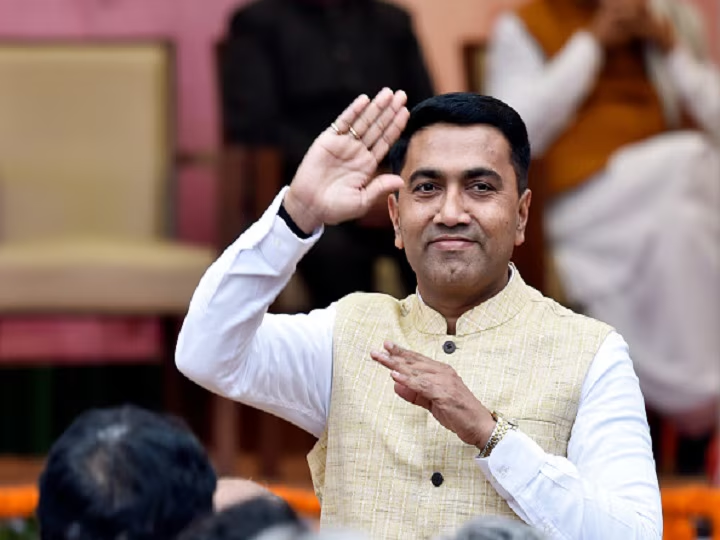In a shocking cybercrime incident, Goa Chief Minister Pramod Sawant’s personal Gmail account was hacked on the night of November 19, 2024. The account, linked to critical platforms like YouTube and social media, faced an unauthorized breach. Swift action by the Cybercrime Cell of Goa Police ensured the account was restored within a few hours, averting potential misuse. However, the incident has raised alarms about the increasing vulnerability of digital platforms, especially for high-profile individuals.
The Incident: Goa CM’s Gmail Hacked
The personal Gmail account of Goa CM Pramod Sawant was compromised in a targeted cyberattack.
The breach occurred late on November 19, 2024.
His Gmail account, tied to important platforms such as YouTube and other social media, was accessed without authorization.
Initial reports suggest no immediate damage was caused to the account, although investigations are ongoing to assess potential risks.
While the account was swiftly restored, the breach raises questions about the security measures in place for protecting sensitive digital assets.
Cybercrime Cell’s Swift Action
The Goa Police Cybercrime Cell demonstrated efficiency in tackling the breach:
Account Restoration: Within four to five hours, the account was secured and returned to the rightful owner.
Damage Control: Authorities ensured that no critical information was exploited during the breach.
Investigation Launched: An in-depth investigation is underway to identify the hacker and the methodology used in the attack.
This incident highlights the importance of having specialized cybercrime units to handle such high-stakes digital threats.
Cybersecurity Threats in India: A Growing Concern
India has witnessed a significant rise in cybercrime incidents over the past decade. High-profile individuals, government officials, and organizations are increasingly becoming targets of sophisticated cyberattacks.
Rising Cases: According to CERT-In, India recorded over 1.4 million cyberattacks in 2023, with email breaches accounting for a substantial portion.
High-Profile Targets: Public figures often face targeted phishing or hacking attempts, as their accounts provide access to sensitive data.
Economic Impact: Cyberattacks cost the Indian economy billions annually, affecting businesses and government operations alike.
The hacking of Goa CM’s Gmail account is the latest reminder of these escalating challenges.
Why Are Gmail Accounts Targeted?
Gmail, being one of the most widely used email platforms, is a common target for hackers. Reasons include:
Personal and Professional Data: Gmail accounts often contain sensitive communications and attachments.
Linked Platforms: Accounts are typically connected to cloud storage, social media, and other tools, offering hackers a broader attack surface.
Phishing Opportunities: Once breached, hackers can impersonate the victim, sending malicious emails to contacts.
Access to Networks: High-profile accounts like that of a Chief Minister may provide a gateway to other government networks or confidential data.
These factors make robust Gmail security practices essential, especially for public officials.
Steps to Prevent Email Hacking
The hacking of the Goa CM’s Gmail account serves as a wake-up call for everyone. Here are some tips to enhance email security:
Two-Factor Authentication (2FA): A critical layer of security, requiring a second form of verification.
Strong Passwords: Use unique, complex passwords and avoid reusing them across platforms.
Suspicious Links: Do not click on links or download attachments from unknown sources.
Secure Backup Email and Phone Numbers: Ensure backup options are secure to prevent unauthorized account recovery.
Regular Monitoring: Frequently review login activity and connected devices.
Adopting these measures can significantly reduce the risk of email hacking.
Goa Police’s Cybercrime Response: Setting an Example
The swift restoration of the hacked Gmail account by the Goa Police Cybercrime Cell underscores the importance of a well-equipped digital security force. Key takeaways include:
Efficiency: The account was restored within hours, minimizing potential harm.
Preparedness: Goa Police’s cybercrime unit acted promptly, demonstrating their readiness to handle digital threats.
Advanced Tools: Employing forensic analysis and advanced tracking methods, the investigation is progressing efficiently.
Such incidents call for further strengthening of cybercrime cells across the country to address the growing digital menace.
A Broader Cybersecurity Perspective
The hacking of Goa CM Pramod Sawant’s Gmail account is not an isolated incident but part of a broader trend of escalating cyber threats. India must take proactive steps to combat this issue:
Cybersecurity Policies: The government should enforce stricter data protection laws and invest in cybersecurity infrastructure.
Training Programs: Regular workshops for officials to educate them on best practices in digital security.
Public Awareness: Campaigns to help individuals recognize and avoid phishing attempts or malware attacks.
With cybercrime becoming a persistent issue, these steps are necessary to safeguard digital platforms.
The hacking of Goa Chief Minister Pramod Sawant’s Gmail account highlights the vulnerabilities inherent in the digital age. While the swift action of the Cybercrime Cell ensured minimal damage, the incident underscores the need for stronger cybersecurity measures. As investigations continue, it serves as a wake-up call for public officials and individuals to prioritize digital security.


Leave a Reply